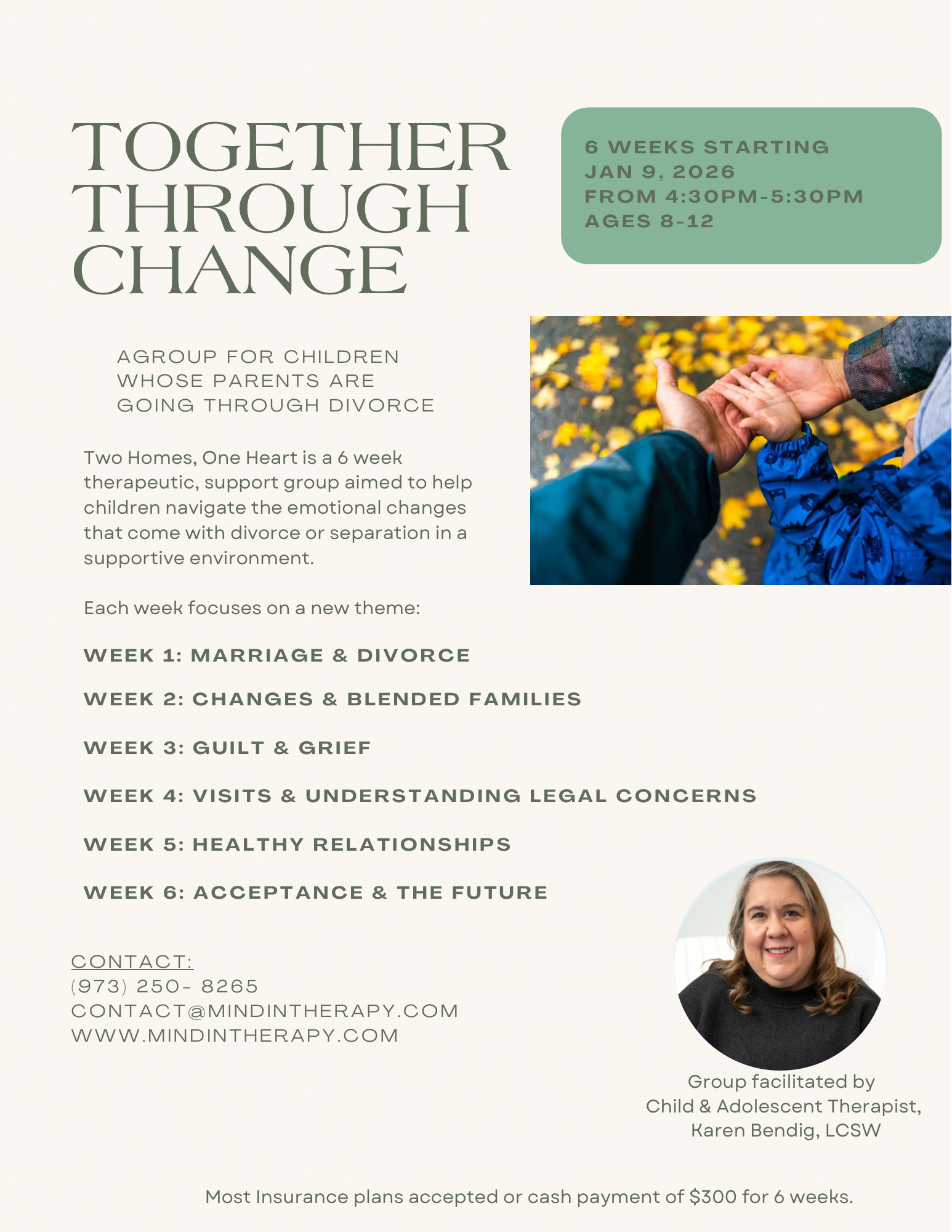Winter 2026 Groups
Adjusting to Changes for Middle School Girls
with Child & Adolescent Therapist Karen Bendig, MSW, LCSW
Curriculum:
Week 1: The Strengths We Have
We all have unique strengths—even when it’s hard to see them. In this session, we’ll explore what makes each of us special and how our strengths can help us face life’s changes with confidence.
Week 2: Building Self-Esteem
What we think and say about ourselves matters. This week, we’ll talk about how to grow a kinder inner voice, challenge self-doubt, and feel more confident in who we are becoming.
Week 3: The Masks We Wear
Sometimes we hide how we really feel to fit in or protect ourselves. This session will help girls understand the “masks” we wear, why we wear them, and how to show up as our true selves.
Week 4: Managing Friendships
Friendships can be fun—but also confusing or stressful at times. This week we’ll learn how to handle changes, miscommunication, and the ups and downs of friendships in healthy ways.
Week 5: Friends or Foes?
Not everyone who acts like a friend really is one. This session helps girls learn the difference between healthy and unhealthy friendships, and how to recognize red flags and trust their gut.
Week 6: Boundaries
Boundaries help us protect our time, feelings, and energy. We’ll learn what boundaries look like, why they’re important, and how to say “no” in ways that feel respectful and strong.
Beginning Fridays, January 9th
6pm-7pm Ages 11-13
Together Through Change
Facilitated by: Karen Bendig MSW, LCSW
6 Week program beginning January 9th
Fridays from 4:30pm-5:30pm
Week 1 – Why People Marry and Divorce
Children learn why adults choose to marry and sometimes separate, helping them understand that divorce is never their fault and that love within families remains constant.
Week 2 – Changes and Blended Families
We explore the changes that come with divorce such as new homes, routines, and/or family members and help kids express mixed emotions while building flexibility and understanding.
Week 3 – Guilt and Grief
This week focuses on identifying feelings of sadness, anger, or guilt and teaching healthy ways to express and cope with those emotions during family changes.
Week 4 – Visits and Understanding Legal Concerns
Children discuss what it’s like to move between homes and learn about custody and schedules in a way that helps them feel more secure and understood.
Week 5 – Healthy Relationships
Kids discover what makes relationships healthy like trust, respect, and kindness and practice positive communication and boundary-setting with others.
Week 6 – Acceptance and the Future
In our final week, children reflect on their growth, celebrate their families’ unique forms, and look ahead with hope and confidence.


